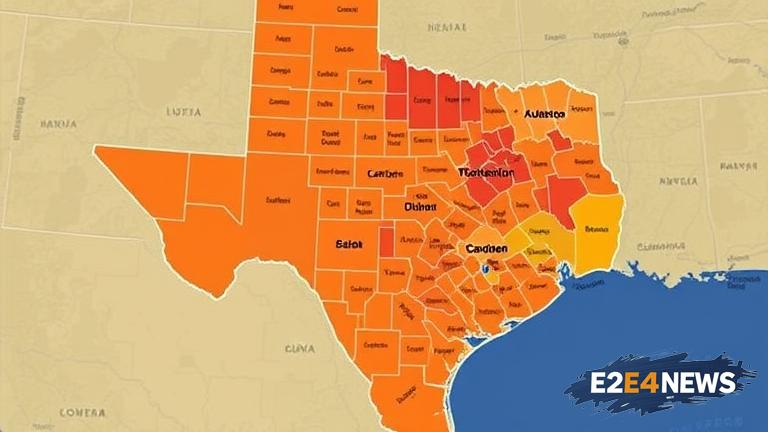The recent walkout by Democratic lawmakers in Texas has brought attention to the contentious issue of redistricting maps proposed by the Republican Party. Civil rights groups have joined forces with the Democrats to express their opposition to the maps, which they claim will dilute the voting power of minority communities. The proposed maps have been criticized for being heavily gerrymandered, with some districts being drawn in a way that favors Republican candidates. This has led to concerns that the maps will undermine the voting rights of marginalized communities, including African Americans and Latinos. The Democrats’ walkout was a dramatic move, with lawmakers fleeing the state to prevent a quorum and thereby blocking the passage of the redistricting bills. The move has been seen as a last-ditch effort to prevent the implementation of the maps, which are set to take effect for the next decade. The civil rights groups, including the NAACP and the League of United Latin American Citizens, have argued that the maps are a clear example of voter suppression. They claim that the maps have been drawn to limit the voting power of minority communities, which could have a significant impact on the outcome of future elections. The groups have also pointed out that the maps do not reflect the demographic changes that have taken place in Texas over the past decade. The state has experienced significant growth in its minority population, but the proposed maps do not take this into account. Instead, they appear to have been drawn to maintain the Republican Party’s grip on power in the state. The controversy surrounding the redistricting maps has sparked a heated debate over voting rights and representation in Texas. The issue has also drawn attention from national civil rights organizations, which have expressed their support for the Democrats and civil rights groups in their fight against the proposed maps. The NAACP has stated that the maps are a clear example of racial gerrymandering, which is prohibited under the Voting Rights Act. The organization has vowed to take legal action against the state if the maps are implemented. The League of United Latin American Citizens has also expressed its opposition to the maps, citing concerns over the impact they could have on the Latino community. The organization has argued that the maps do not provide adequate representation for Latino voters, who make up a significant portion of the state’s population. The controversy surrounding the redistricting maps has also sparked a debate over the role of politics in the drawing of electoral districts. Many have argued that the process should be taken out of the hands of politicians and given to an independent commission. This would help to ensure that the maps are drawn in a fair and impartial manner, rather than being used as a tool for political gain. The issue of redistricting is a complex one, and the controversy surrounding the proposed maps in Texas is just one example of the challenges that states face in ensuring that their electoral districts are fair and representative. As the debate continues, it is clear that the outcome will have a significant impact on the future of politics in Texas and beyond. The proposed maps have been criticized by many, including former politicians and voting rights advocates. They have argued that the maps are a clear example of partisan gerrymandering, which is prohibited under the Constitution. The controversy surrounding the maps has also sparked a debate over the use of technology in the drawing of electoral districts. Many have argued that the use of advanced mapping software has made it easier for politicians to gerrymander districts, which can have a significant impact on the outcome of elections. The issue of redistricting is an important one, and the controversy surrounding the proposed maps in Texas highlights the need for fair and impartial electoral districts. As the debate continues, it is clear that the outcome will have a significant impact on the future of politics in the United States.





